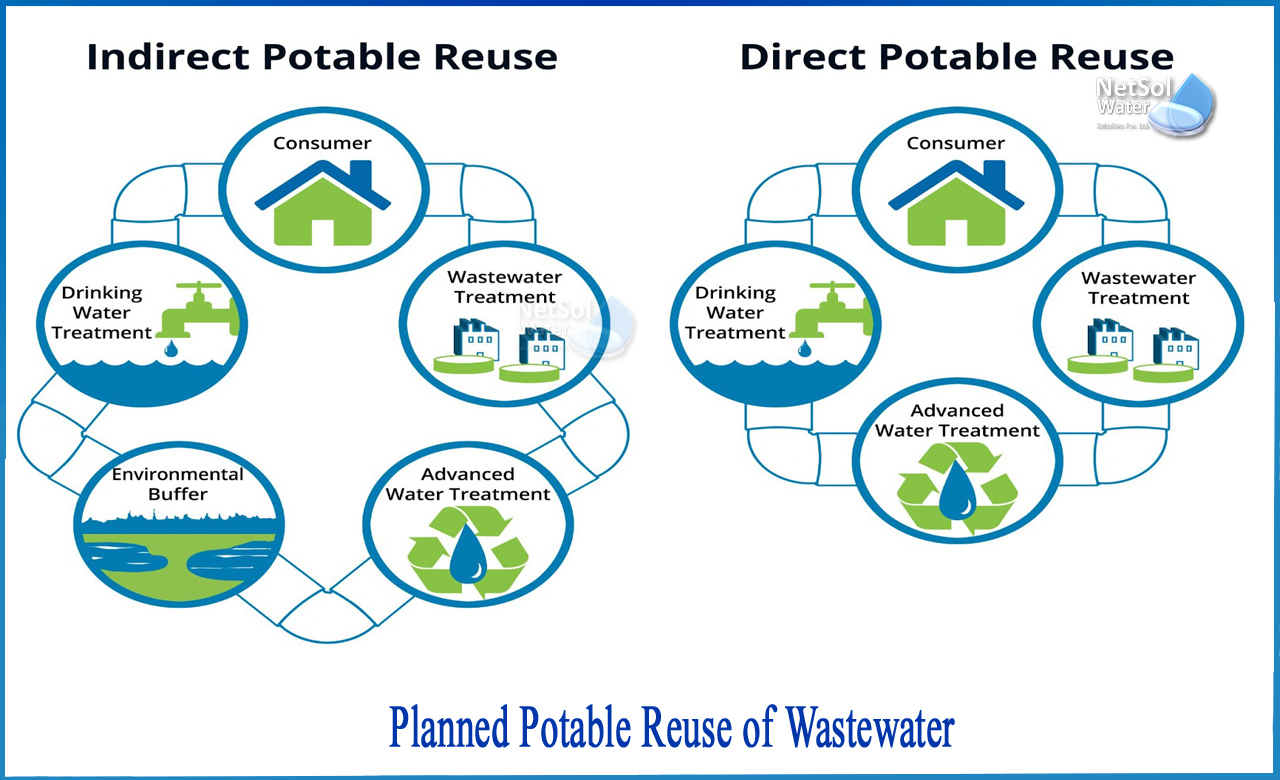What is potable water in wastewater treatment?
Planned potable reuse is a publically recognised operation that recycles water for drinking purposes.
Potable water can be given for reuse in two ways: "Indirect Potable Reuse" (IPR) and "Direct Potable Reuse." In comparison to de facto or unacknowledged reuse, both of these types of re-use typically entail a more formal public process and public consultation programme.
Some water agencies repurpose highly treated effluent from municipal wastewater treatment plants or resource recovery plants as a stable, drought-resistant source of drinking water. They generate water that meets all applicable drinking water requirements by employing modern purification methods. For them to meet tight requirements, system reliability and frequent monitoring and testing are essential.
The community's water needs, available water sources, the types of water infrastructure in place, and public health regulations, costs such as distribution systems, man-made reservoirs, or natural groundwater basins, all influence whether and how reclaimed water can be used as a source of drinking water. Water is reused in certain places to recharge groundwater basins. Others put it in reservoirs for surface water.
Reclaimed water is mixed with other water supplies and/or stored for a period of time before being pulled out and treated new at a treatment of water or distribution system in these cases. Recycled water is pumped directly into pipelines that lead to a water treatment plant or distribution system in some places.
Technologies for reclaimed water
When reclaimed water is blended with drinking water, modern methods such as reverse osmosis and UV disinfection are typically used.
1: Reverse Osmosis: Reverse osmosis (RO) is a water purification technology that uses a partially permeable membrane to separate ions, unwanted chemicals, and larger particles from drinking water. In reverse osmosis, an applied pressure is used to overcome osmotic pressure, which is caused by chemical potential changes in the solvent, which is a thermodynamic parameter. Reverse osmosis is used in both industrial operations and potable water production to remove a wide spectrum of dissolved and suspended chemical species, as well as biological species (most notably bacteria) from water.
2: Ultraviolet disinfection: UV light, also known as ultraviolet germicidal radiation, is commonly used to sterilise equipment and create sterile environments, as well as to inactivate microorganisms in the food and water industries. Since 1909, UV-C radiation has been used to disinfect drinking water, and it is a safe and effective method.
Different pathogens in drinking water are sensitive to UV light in different ways. The technology is particularly beneficial as a point-of-use or point-of-entry system for houses supplied by boreholes, springs, and surface waters; however, pre-filtration is recommended to remove tiny particulates that could protect bacteria.
It's also frequently employed in high-rise business and residential buildings, as well as hospitals, to guarantee that stored water pumped to the building's service area, often at night, is disinfected before being used. To defend against Legionnaires' disease, it is increasingly being utilised in conjunction with shower systems.
Health effect concerns with potable reuse
Many people dislike reclaimed water, and 13% of those polled stated they would refuse to drink it. Nonetheless, the potential for pharmaceutical and other home chemicals, or their compounds (environmental persistent pharmaceutical pollutants), to stay in reclaimed water poses the greatest health danger. This would be less of an issue if human waste was kept out of the sewage system by using dry toilets or systems that deal blackwater and greywater separately.
Conclusion
Water is expected to degrade in the near future, resulting in a fresh water deficit. As a result, we all agree that planned potable reuse will assist us in all aspects in order to save our most valuable resource, WATER.
Netsol Water is India's leading manufacturer of water treatment plants. We, Netsol Water , provide various water technologies with the added benefit of customization to meet the needs of our customers in order to successfully complete the project of planned potable reuse.
Netsol Water is Greater Noida-based leading water & wastewater treatment plant manufacturer. We are industry's most demanding company based on client review and work quality. We are known as best commercial RO plant manufacturers, industrial RO plant manufacturer, sewage treatment plant manufacturer, Water Softener Plant Manufacturers and effluent treatment plant manufacturers. Apart from this 24x7 customer support is our USP. Call on +91-9650608473, or write us at enquiry@netsolwater.com for any support, inquiry or product-purchase related query.



